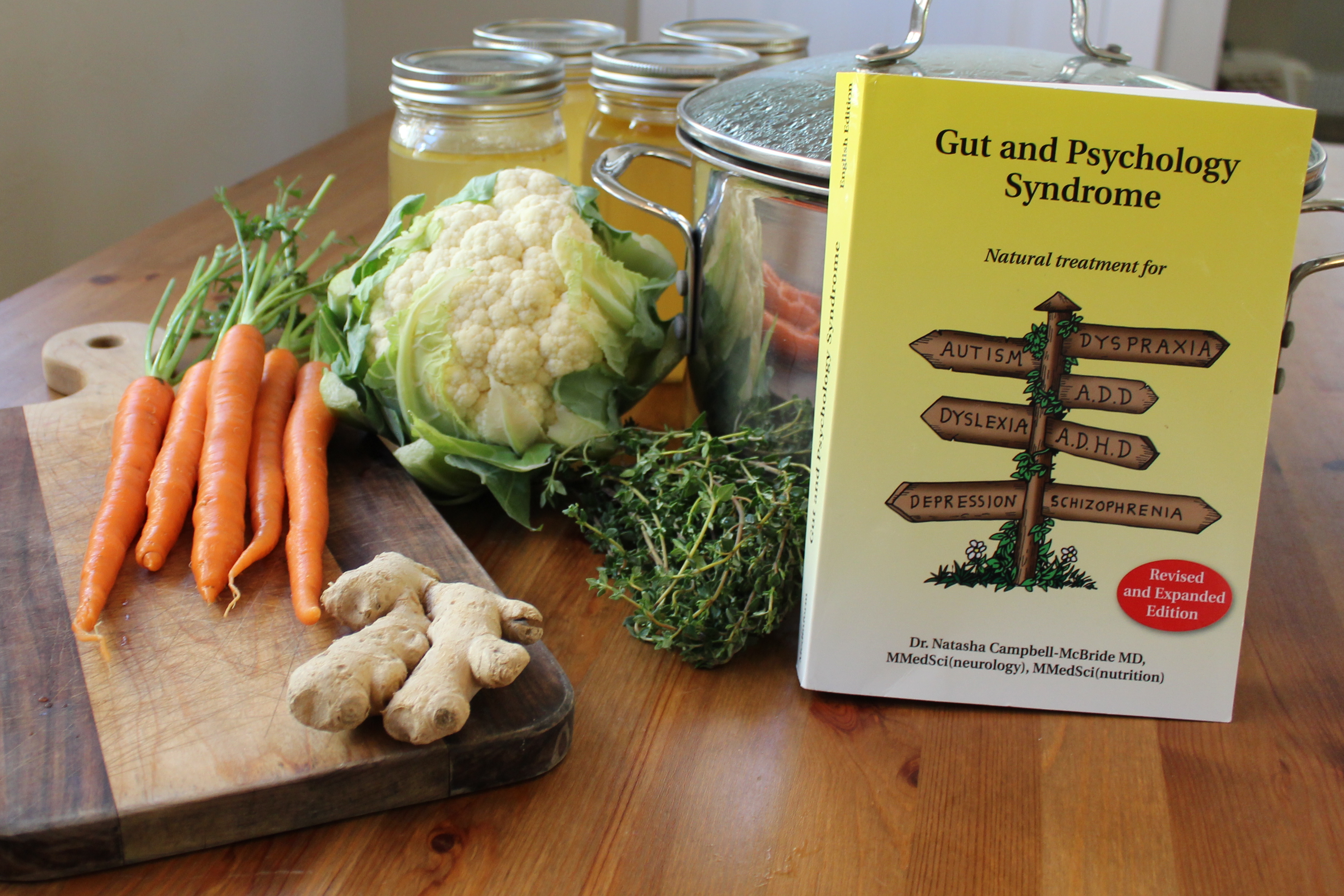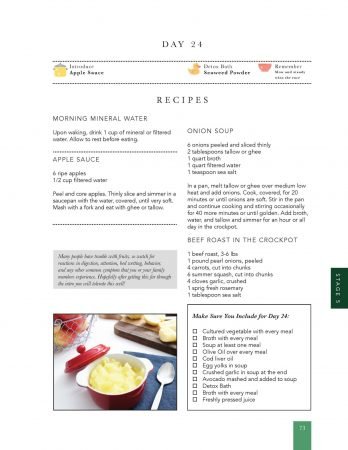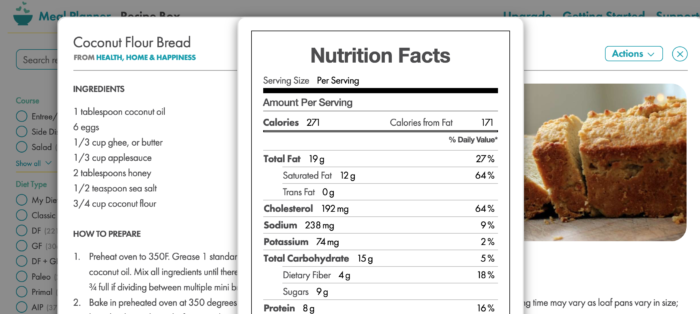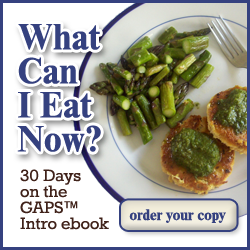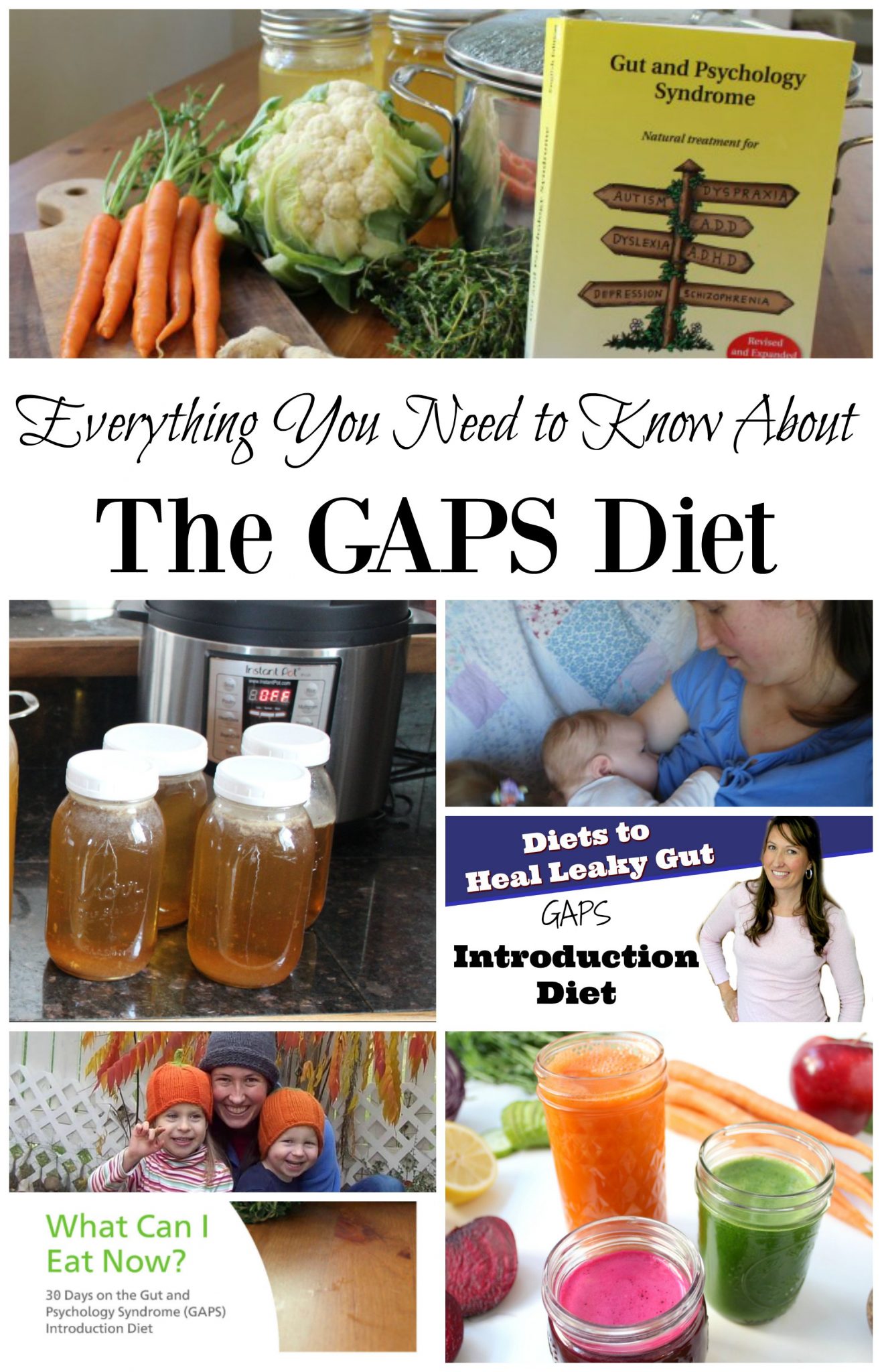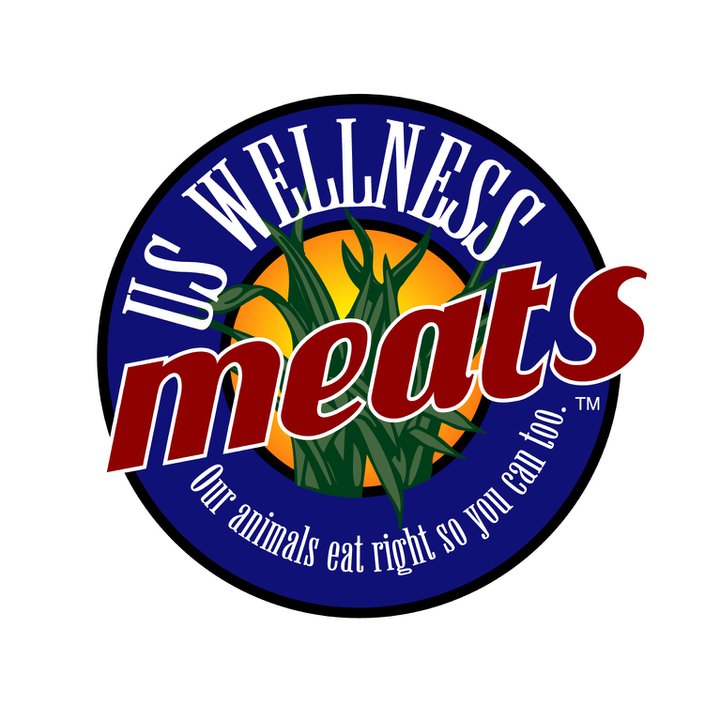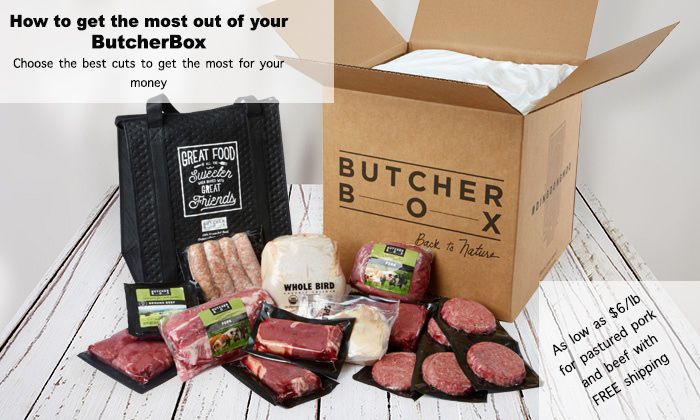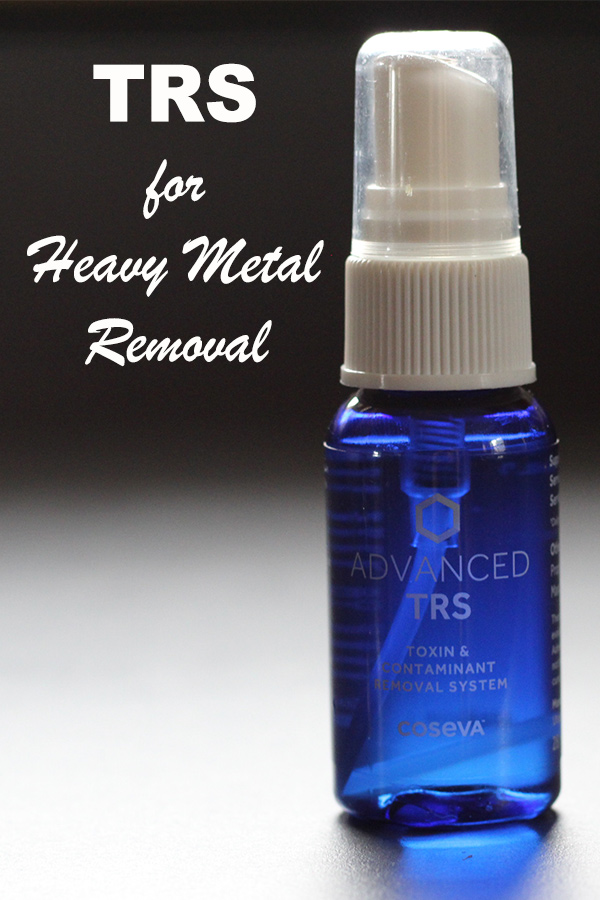Who needs to calorie count on the GAPS? Less people than on many diets… BUT… Certain groups of people do benefit from some form of calorie counting on the GAPS diet.
- People who can’t afford to lose weight due to already being underweight.
- Those who would like to lose but aren’t doing so and don’t know why.
- Individuals who just don’t feel good, or aren’t loving the GAPS diet
- Anyone with known hormonal issues who may ‘feel hunger’ when it’s not there, or not feel hunger signals as the rest of the population does. Diabetics, those with thyroid disorders, PCOS, etc.
- People with a history of disordered eating who aren’t feeling good on GAPS, whether it’s binging or restricting or just not having a healthy relationship with their hunger signals. Who is that? Sadly too many in our modern culture.
We’re talking about the common sense approach to calorie counting on the GAPS diet. This is not your mama’s calorie counting. Oh, no, it’s GAPS calorie counting. It’s empowering calorie counting that will nudge your body into balance and healing and give you more information about what is working and what isn’t with the GAPS diet.
What is the GAPS Diet? The GAPS Diet: Everything You Need to Know
Let me know how calorie counting is going for you in the comment section! I want to hear- do you spot check like I do? Or do you completely ignore them? Do you love the details and log every bite of food?
Read: What Can You Eat on The GAPS Diet?
Why count calories on the GAPS diet?
Calorie counting spot checking – not obsessing- does have a place in eating plans. Calories are a unit of measurement, they are used by your body to have energy and maintain mass.
Thankfully, with the GAPS diet we can nearly always eat until we’re full of GAPS-allowed foods and our hormones will regulate so that we are hungry when we need more fuel, and not hungry when we could skip a meal.
But.. of course there is a but… as you’re transitioning onto your eating plan you may find that you’re just feeling off, or not losing weight like you’d like, and calorie counting has a place in this program!
If you’re doing great eating when you’re hungry and drinking to thirst, that’s awesome, and this is not directed at you :)
This is for those who have:
- Sensory issues and avoid many GAPS foods.
- Failure to thrive, and their care providers are concerned about restricting food options
- Insulin resistance, and feel hungry more often than they need to eat.
- Those who need to lose weight, and aren’t seeing the weight loss they would like to see, despite feeling like they are doing GAPS correctly.
- Those who need to avoid losing any more weight- this isn’t always from lack of calorie consumption, but you’ll want to rule out not eating the appropriate amount of calories.
When your hunger hormones are messed up, your digestive system is often in distress, or you have sensory issues, you will feel hunger that does not correlate with your body’s needs. Thank goodness the GAPS diet helps correct your hormones and you will soon be restored to your body’s natural ability of desiring what it needs! But in the meantime, you can help it out with a little structure.
Read: Is Mercury affecting your thyroid and hormones?
Read: The GAPS Diet for Sensory Kids, Toddlers, and Picky Eaters
Most people under eat at first on GAPS.
Meat, coconut oil, and coconut oil are all calorie dense, and this is a good thing. The most common reason people bail on the GAPS diet is that they are *overestimating* how many calories they are eating in red meat especially (hamburger, steaks, roasts). This has been drilled into our heads, as our health problems and cultural obesity crisis has been blamed on red meat.
It’s not the red meat, most people who overeat on the carbs they have with their red meat. It’s the fries, not the burger. The bread, not the steak. And the taters, not the roast. So, you might want to spot-check any calories that you’re eating to make sure you’re not under-eating calories on the GAPS diet.
When we undereat in calories, we might be lethargic or just feel off. So spot checking on the GAPS diet, especially if you’re avoiding dairy, is a good thing to do.
Read: I want to do the GAPS Diet, where do I start?
To know how many calories you need:
Go to a TDEE calculator and input your height, DESIRED weight, and underestimate your activity level unless you are a true athlete exercising for over an hour of intense exercise a day. These calculators are notorious for overestimating calories burned from exercise.
This gives you a rough estimate of what to aim for – it’s not going to be down to the calorie for each person, since metabolisms do vary, but it is more accurate than what most people are guesstimating on their own.
To spot-check calories on the GAPS diet:
Checking your calories over a few days helps you know where you’re at calorie-wise on the GAPS diet. When spot-checking calories check every day for a 4-5 day stretch rather than here or there since we all tend to eat more on certain days than others.
Meal Plan Method:
Make the recipes in the Health Home and Happiness GAPS recipes on Real Plans for a 3-4-day stretch— I have calories on each recipe, and a total for each day!
If you’re used to eating vastly over or under the amount set in the meal plan, you can adjust your daily meals until you are used to a calorie amount more reasonable for your needs.
Calorie tracking apps & weighing your food:
Calorie count for yourself for a 2-3 day stretch of average eating. This is more tedious, but it’s an investment in your health. To do this, weigh and measure- don’t guesstimate – for the best results. Weigh your meat, weigh your veggies, weigh your fats, weigh (especially) your dairy.
That slice of sharp cheddar here and there may ACTUALLY total more like 1/2 cup, and that is over 400 calories. Good if you’re trying to gain, but maybe notsogood if not.

Who else can benefit from spot-checking calories on the GAPS diet?
Those who need to gain weight on the GAPS diet
Knowing that you are eating enough calories can actually lower your stress, and allow those calories and nutrients to be absorbed better into your digestive tract. If you’ve been ‘trying to eat as much as you can’ while worrying about losing weight, you may accidentally be stressing yourself out and rushing your food through your digestive tract because of it.
Many people who need to gain weight are worried about an allergy elimination diet, and might be nervous to start the GAPS diet. But remember, an inflamed gut is a gut that isn’t extracting nutrients from food. So if you’re eating foods you’re allergic to, you may be eating a large amount of calories, but they aren’t being absorbed because your gut is compromised.
If you find that you are under calories when you do your spot-check of calorie requirements vs actual calories consumed, the most effective way to gain weight is to add more fat to your food!
Troubleshooting if you are losing too much on GAPS
If you’ve checked your calories, and you’re eating the correct amount of calories for the weight you would like to gain, try removing common allergens- dairy and eggs.
You may protest about reducing your dietary choices even further. In this case, treat each meal of hypoallergenic food (I recommend grassfed beef) like it’s a needed medical treatment – because it is!
Solving nutrient deficiencies and gut imbalance/leaky gut is essential when you are trying to gain weight. If you are eating all beef, lots of fat, taking needed digestive supplements, and still not gaining, I recommend addressing potential heavy metal issues, and being sure to include liver and heart for the extra nutrients.
Read: Digestive Supplements for better nutrient absorption and more comfortable bathroom habits
Read: Heavy Metal Removal with Advanced TRS
Cook: Chicken Liver Pate
Cook: How to Cook Beef Heart in the Instant Pot
Those who need to lose weight on the GAPS diet
If you’re gaining weight on the GAPS diet, or not losing weight like you had hoped, counting calories certainly has its place. When you see what’s going on calorie-wise with your diet you can either see that – one – calories are an issue and they need to be cut back or – two – your calories are on track, so there may be something hormonal, digestion-related, or inflammatory going on!
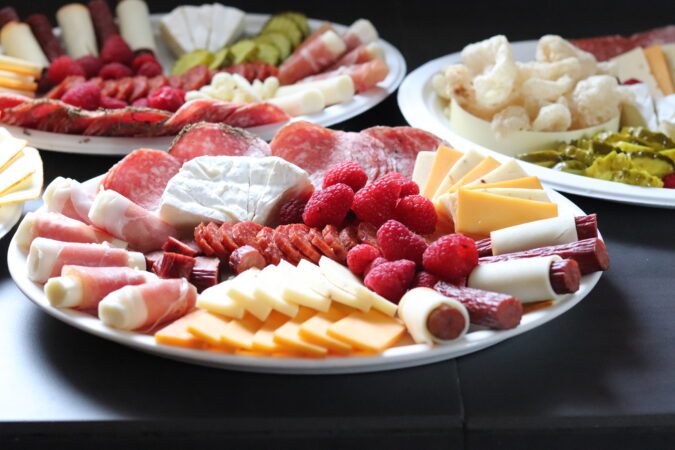
Reasons you may be overeating calories on the GAPS Diet:
- Dairy is high calories. Butter, cream, cheese, cream cheese, Moon Cheese, and especially heavy cream can all contribute to a large calorie load. Dairy is allowed on the GAPS diet, but it also a common ‘food with no brakes’ – to borrow a term from Melissa Urban of the Whole30 diet. A food with no brakes is a food that is hard to stop eating once you start. For many, creamy dairy qualifies as this kind of food.
- You are eating for comfort, eating for addiction, eating for distraction, or eating for reasons other than you are actually hungry. Some people with an addictive personality, or who are avoiding feeling uncomfortable emotions, may be using food for comfort. Learn more about this in the video: Why Addiction is the Root of a Problem, not THE Problem here.
- Your hunger hormones are confused. That feeling of hunger that you experience is from hormones. Just like sleepiness is triggered by sleep hormones, hunger is triggered by hunger hormones. If you’ve been feeding your body every 3 hours, your body adjusts its hormones to expect food every few hours. These ‘small frequent meals’ send your body into a constant state of hunger, just like if you took 3-4 naps a day you’d have trouble ever feeling truly ‘awake’. Intermittent fasting of some kind helps regulate hunger hormones.
- You are not sticking with the GAPS diet strictly – sauces, sweeteners, or other keto ‘treats’ all add up. If you’re venturing out to commercial jerky, barbecue ribs, and flavored pork rinds you may be getting too much of that coveted sweet-savory combination that can cause addiction and for us to eat beyond our nutrient needs.
- On the GAPS diet your stomach isn’t *stuffed* like you may be used to if you were filling your plate half full of worthless vegetables. If you’re trying to achieve that stuffed feeling, thinking it’s ‘fullness’ on the GAPS diet, you may well be overeating.
Reasons for not losing the weight you’d expect even if your calorie count is low on GAPS:
- Inflammation– if you’re eating food that you’re having an inflammatory response to, you will gain water weight.
- Hormonal issues – if your hormones are out of whack, you will both feel hunger abnormally, and have a slower metabolism. The goal is to balance the hormones, not to blame the hormones! Heavy metals can be at play here, so be sure to read Heavy Metal Removal with Advanced TRS.The good thing with the GAPS diet is that it provides the intense nutrition and lack of inflammatory foods (grains, sugars) that disrupt our bodies and our hormones. With time, your body will heal, repair, and balance hormones.
Those who don’t feel good on the GAPS diet should spot-check calories on the GAPS diet
If you aren’t feeling great on this diet, after the initial adjustment to ketosis and adjustment to cutting sugars and grains, you absolutely want to spot-check your calories and make sure you’re not only getting enough calories but also getting enough fat! Too much protein can make many people feel ‘off’ so when in doubt, up the fat! As you up the fat, or if your tracking shows that you are eating plenty of fat but you still feel low energy, up the fat!
Read: Why You Need Fat Bombs (low carb, keto, GAPS)
Read: The Ketogenic Version of the GAPS Diet
If you have known hormone issues, spot-check calories on the GAPS diet
Those with known hormonal issues who may ‘feel hunger’ when it’s not there, or not feel hunger signals as the rest of the population does. Diabetics, those with thyroid disorders, PCOS, other hormonal issues.
-
- Hormones are part of your body as a whole, and can’t be ignored, and they absolutely do influence how hungry you are. If you have little kids, you’ll notice that they eat a ton for a couple weeks, then sleep a ton for a week, and then all of a sudden their pants are all too short. This is a hormone-driven growth spurt!
- Women, you know there is one or two days each month before your period that you can eat a pound of beef for each meal and still be hungry? And yet you don’t even gain weight? Again, these are hormones dictating this!
- Insulin circulating in your blood causes hunger.
- Ghrelin is the intense hunger hormone that gets released by your body when it expects you to eat. This is why if you are fasting you only get hungry around the times you usually eat. It can be trained, much like you set a consistent bedtime to regulate sleep hormones, to only be released at certain times.
If you have a History of Eating Disorders and aren’t feeling good on GAPS, spot-check calories on the GAPS diet
Those with a history of disordered eating, whether it’s binging or restricting or just not having a healthy relationship with their hunger signals. Who is that? Sadly too many in our modern culture. If you feel good you don’t need to calorie count, if you feel anything less than healthy and energetic, spot-checking calories on the GAPS diet may show that the calories are vastly over or under what your body actually needs.
-
-
- If you have a varied weight, with highs and lows that are more than 15 lbs apart, you probably could benefit from spot-checking your calories on GAPS every once in a while.
- If you feel shame or guilt about food, you probably are impacted by some form of disordered eating.
- Food is fuel! Food is delicious! We’re going to re-train our brains and bodies to have a better relationship with our food :) And for many people, yes, this does include some form of calorie counting!
-
Eat GAPS Foods to thrive
A reminder as you track your calories- there is no judgment or shame associated with calories. Too often we have shame attached to calorie counting, and it results in avoidance and denial. Calories are a unit of measurement.
Learn how to heal leaky gut

60-page ebook of all my best GAPS Diet (Gut and Psychology Syndrome) articles all in one place.

